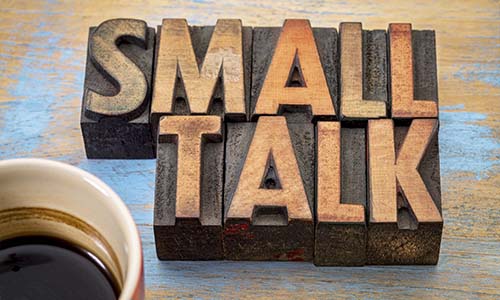Will the Real You Please Stand Up — How to Become Authentic
Who would you consider to the the real you.
It can be quite unnerving to discover that others see us in a different light to how we perceive ourselves. Or, perhaps, we are indeed aware that we adopt a different persona for the different parts we play in life. That’s normal, even recommended. We need to be more formal at work than with our families and friends. If we dislike someone, we might turn on the charm, for the sake of keeping the interaction pleasant. The real you might be someone you haven’t thought about.
There’s nothing wrong with playing a part if we’re aware that’s what we’re doing. The trouble starts when acting becomes such a habit that we lose track of our authentic self. We just don’t know who we are any more. The real you could have been hiding since childhood.
And that’s when self-esteem problems develop—when we‘re continually playing different roles to conform to what’s expected of us, or to keep the peace. We can no longer be sure if decisions we make are truly our own. In fact, we even lose track of what we really want, so find it harder to make choices, let alone decisions.
That’s the value of setting aside periodical moments to reflect on the direction your life’s taking, and on how you feel about daily events.
So let’s focus on who the real you is. Or more appropriately, the seven versions of you there are likely to be. Some are closely related, but reveal slightly different dimensions.
The real you can be hidden by insecurities and fears.
1 Your Indoctrinated Self
This is the part of you that’s been shaped by various influences in your life, like a computer that’s been programmed by someone. These programs are the influences that cause you to behave and react in certain ways.
Aspects of your conditioning include family culture, values and attitudes, upbringing and spiritual beliefs—all of these influences would have shaped you, in addition to your own experiences and personality, which contributed to making you who you are today. It masks the real you.
If you remain unconscious of these influences, you remain driven by that programming. If, on the other hand, you do become aware of them, you can choose whether to retain or reject them, and you’re better able to act out of deliberate choice or personal integrity—that authentic self.
Who is the real you? Do you want to find out?
2 Your Deliberate Self
This is the self you’ve deliberately chosen to be and continue to work on developing. Aspects include your opinions and priorities, which might shift over time, or confidence and skills you’ve built through effort. The real you will allow you to be yourself.
Will the real you ever make it out of the fog?
3 Your Future Self
This is who you want to be. The one you’re consciously working towards becoming, but haven’t quite reached yet. It encompasses aspects of your personality you might be trying to change, or fears you have yet to overcome. (Who says you can’t change your personality?)
Closely related, and yet separate, is:
4 Your Potential Self
This is one of the parts of you that is latent, possibly unrecognised. You might not be actively trying to become this person, because you have no idea that you’re capable of doing something else, or being a different person. How often do we hold ourselves back from something, because we don’t believe we have what it takes to succeed?
For example, you might see yourself, and be seen to be, a quiet, shy introvert. Yet, this could be simply because of lack of social confidence and skills, which if they were developed, could allow you to emerge as an extrovert.
Or perhaps, you do recognise you have the potential, but your priorities are taking you in a different direction, so you’re not taking action to develop into it.
5 Your Fake Self
Now, here’s the one you’d like to be seen to be. This is the pretend version of you, controlled by your low self-esteem. This is the part of you who tries to impress; who might hide behind ostentation. (Who’s going to admit to that?) We join the ‘right’ clubs, wearing the ‘right’ clothes, to be seen in the ‘right’ places by the ‘right’ people.
Teenagers who are still developing a sense of self are particularly vulnerable to this, as any parent knows who’s been read the riot act for not buying the ‘right’ clothing. Sadly, many of us are still caught in that trap as adults, if we have low self-esteem.
Every time you get rid of one fake aspect of yourself, you become more real, and your self-esteem rises in proportion to your heightened sense of self.
Here’s an example. I used to have an impressive array of books I had always intended to read. I never looked at the stupid things, but hey—they looked good on my bookshelves. And when friends saw them they would comment on what a wonderful intellectual I was…I would pat my hair and smile graciously and lap it all up.
One day, when I was in the right mood to laugh at myself, I got rid of the ‘read-one-day’ books, leaving only the ones I referred to often. In so doing, I stepped closer to being authentic.
6 Your Hidden Self
Closely related to your Fake Self, yet slightly different. Whereas your Fake Self is something you’re pretending to be, your Hidden Self is the You that you hope no one will find out you really are! We all have aspects of ourselves we would prefer people not to know about, but you need to consider how essential it is that people didn’t know this about you. Would it really matter?
The walls that we put up to protect ourselves are the same walls that prevent others from getting close to us.
For years I was too embarrassed to reveal that I’m a sucker for romance. Romance anything, books, films, songs—the whole enchilada. The soppier the better. The only way I could allow myself to enjoy them without guilt was to read them in French or Italian and assure myself that at least I was practising my languages, so it couldn’t be that bad…
Every time you’re hiding something, you could end up hiding it from yourself and believing your own lie. That’s how you get into denial, and that can be downright inconvenient, not to mention dangerous.
And so we come to that last part of you, perhaps the largest part:
7 Your Unknown or Unconscious Self
Deep down in your unconscious mind are all the parts of you that you’ve suppressed and repressed over the years. You don’t have a clue they’re there, until they surface at some inconvenient time and you find yourself reacting in ways you don’t understand and can’t control.
Digging them up and facing them can be a scary business for some: goodness knows what you’ll find if you start digging. And yet, discovering those parts of yourself can be as exciting as an archaeological dig uncovering great treasures. There are likely to be hidden potentials down there as well as aspects that need to be transformed.
It can be the most liberating, healing thing you can do, as you set yourself free from the subconscious controls that have dominated your life.
This above all: to thine own self be true, and it must follow, as the night the day, thou canst not then be false to any man. (William Shakespeare)
Is it time for you to start being the real you and more authentic? Would you like some guidance and encouragement? If so, contact me directly to arrange a convenient appointment time.
I’d love to know what you think of what I’ve said here.
You can give me your feedback, ask a question by email or post a comment below.
If you or someone you know would like a personal consultation, please call +61 439 969 081.

Confident Conversations and Social Etiquette Course
Interested to find out more? Book your Course now.
Information only
Any information presented on our website is of a general nature only and is not intended as a substitute for professional advice.
Reproducing and Sharing
Jacquie Wise has many articles available for reprinting in your newsletter, website, social media or to pass on to your friends (including this post) that she would be happy for you to share. You can share a direct hyperlink to this post’s URL at anytime.
If you would like to reproduce any articles, Jacquie relies on your integrity to quote the content in its entirety and include the following acknowledgment at the end: © Jacquie Wise – Integrative Coach, Counsellor, Speaker, Trainer and Author, specialising in life, love, work and soul (www.wiseways.com.au)





